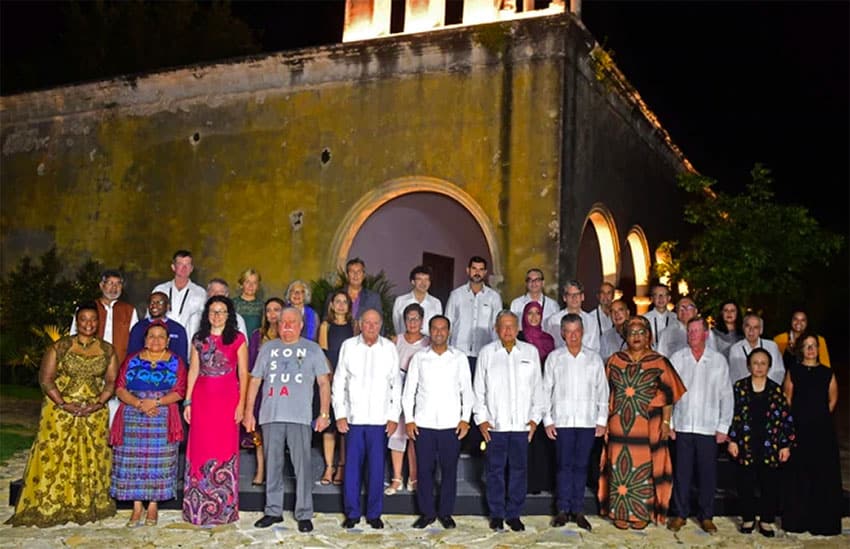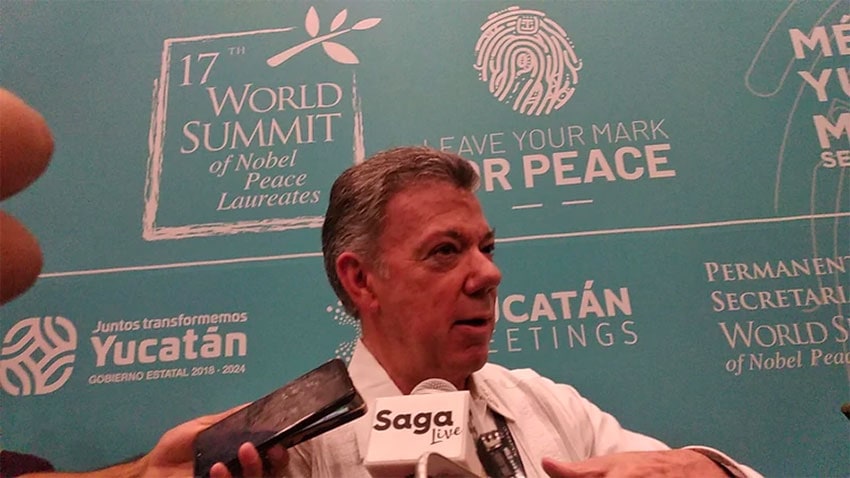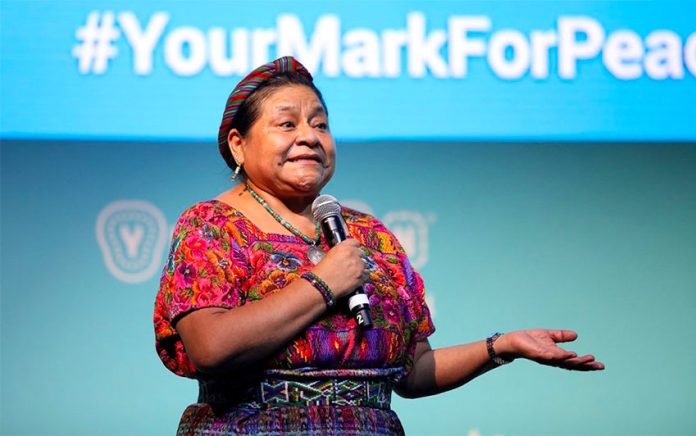President López Obrador has told Nobel Peace Prize laureates gathered in Mérida, Yucatán, for a four-day summit that his government is determined to achieve peace in Mexico without resorting to authoritarianism or the use of force.
Speaking at a welcome dinner on Thursday for the attendees of the 17th World Summit of Nobel Peace Laureates, López Obrador said that he is committed to finding a peaceful solution to the violence plaguing the country.
“What we want is to achieve total peace but we don’t want a peace achieved with authoritarianism, with the use of force. We don’t want a peace of graves, we want peace that originates in the delivery of justice, we’ve always said that peace is the result of justice,” he said.
“We have problems of insecurity and violence and [past governments] have wanted to confront the scourge of violence with the use of force, with prisons, with heavy-handed threats and harsher [prison] sentences – even with extremely authoritarian acts – with raids, with massacres, with exterminations and it’s been proven that it doesn’t work, that we have to attend to the causes that give rise to violence,” the president said.
After charging that the idea that people are “evil by nature” is “outdated, anachronistic and conservative,” López Obrador said that his government’s pacification strategy for Mexico includes providing employment and study opportunities for the country’s young people, who he claimed were abandoned by past governments.

He said earlier this week that the government’s welfare programs, the National Guard, the campaign against the consumption of drugs, preventing corruption in the justice system, respecting human rights and confronting arms trafficking were all part of the plan to bring peace to Mexico.
The president told the peace prize winners, among whom were former Colombian president Juan Manuel Santos and Guatemalan human rights activist Rigoberta Menchú, that his administration has an “enormous” task ahead of it in order to “carry out a transformation” of Mexico “without violence.”
But the enormity of the task – Mexico is on track to record its most violent year in recent history in 2019 – doesn’t justify “more of the same,” López Obrador said, again referring to the strategy of past governments to use force to attempt to combat crime.
The president said his election didn’t represent “a simple change of government” but rather “a change of regime,” a reference to the “fourth transformation” he says he is bringing to Mexico.
The peace summit, which commenced on Thursday and will run until Sunday, comes just days after López Obrador sent a proposal to Congress for an amnesty law that would allow some criminals, including young people convicted of minor drug offenses, to be released from prison.
Colombia passed a similar amnesty law in late 2016 that protected guerrilla fighters of the Revolutionary Armed Forces of Colombia, or FARC, from prosecution for minor crimes committed during the country’s more than 50-year-long civil war.

Juan Manuel Santos, who was president of Colombia between 2010 and 2018 and the Nobel Peace Prize winner in 2016, said on Twitter on December 28, 2016 that Congress’ approval of the amnesty law was the “first step towards the consolidating peace.”
However, asked about López Obrador’s amnesty plan at a press conference in Mérida on Thursday, the ex-president expressed a very different view.
“Amnesty has evolved. The world learned that the clean slate [approach] has more problems than benefits in the long run. But transitional justice . . . returns rights to victims,” Santos said.
Transitional justice includes measures such as criminal prosecutions, the establishment of truth commissions, the payment of reparation for victims of human rights violations and the reform of laws and institutions, including the police, judiciary and military, according to the International Center for Transitional Justice.
Santos also told reporters that the solution to the problem of drug trafficking lies in the lifting of the prohibition of narcotics.
“Prohibition is the source of criminality . . . The world has to evolve toward what happened with liquor in the United States,” the ex-president said referring to the end of prohibition in 1933.
“It’s been 45 years since the war on drugs was declared and the war hasn’t been won. Colombia is the country that has had the most victims and we’re still the main exporter of cocaine.”
Source: Milenio (sp)
